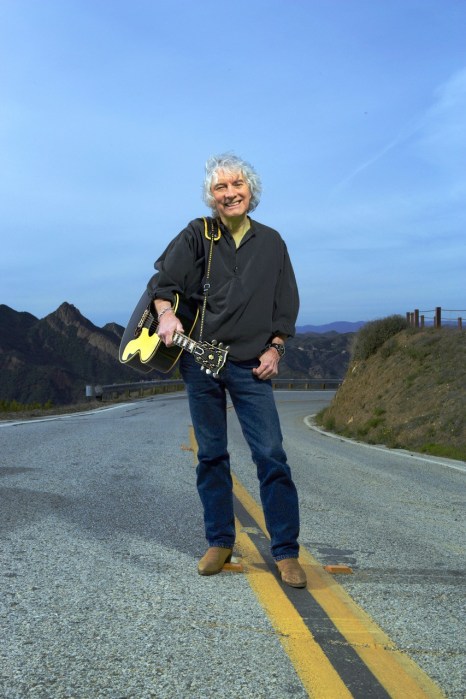Review of: The Novel, Who Needs It? Joseph Epstein
Joseph Epstein, prolific author and essayist, is now in his early Eighties and still going strong. Taking time from the essay, Epstein, a longtime literary critic, has penned a short brief on behalf of the art form that has consumed much of his energies: the novel.
The volume delivers a slew of definitions from a slew of novelists and critics. What is the novel? “The novel at its best…seeks to discover deeper truths, the truth of the imagination, the truth of human nature, the truth of the heart,” Epstein declares.

(Photo credit: Hoover Institute)
The novel matters. In Martin Amis’s final volume, Inside Story, the author observes that once that genre picked up popularity in England, the homicide rate in that rowdy island nation dropped by nearly 1,000 percent. Was it true? My favorite comes from the longtime William Faulkner scholar, Cleanth Brooks, who maintained that while the novel can’t tell people how to make a living, it can say something about how to live a moral life.
Epstein’s brief for the novel touches briefly on several themes: Style, plot, taste, explicitness, and the purpose of a political novel. Epstein maintains that readers may mature along with their own tastes. A reader, in their youth, might enjoy The Sun Also Rises before moving onto more accomplished giants such as Tolstoy and Proust. I would add — and The Novel, Who Needs It? inspires such reflection—that the world of Of Time And The River, The Adventures of Augie March and Visions of Cody reveals, to the young man, that life is not as gray and bleaks it looks. On the pages of such epics the world opens up like a big old eight-lane highway, a world of endless possibilities.

(Photo credit: Library of America)
Epstein hails the 19th century of that genre’s peak: Tolstoy, Dostoevsky, Proust, Jane Austen, George Eliot, the Bronte sisters, Balzac and Flaubert. The latter century was one of peace in Europe, but also great upheavals brought on by the Industrial Revolution, the flight from the countryside to the city, and an expanding middle class. The novel now settled in mostly as a middle-class morality tale. Back to Brooks: How not to make a living, but how to live.
The 20th century presented the same challenge. The middle class expanded as did advances in science and technology. So, too, did middle class temptations, those on an even higher scale than such individual cases as Emma Bovary and Anna Karenina. The turning point was 1960 and the publication in English of D.H. Lawrence’s Lady Chatterley’s Lover. Epstein is correct. The novel is no great shakes. Was the publication of four-letter words necessary to the fate of the novel? Think of all the talented novelists who since then have felt the need to sprinkle their works with obscene words and tedious scenes. Epstein has long singled out such giants as John Updike, Philip Roth, Saul Bellow, and Norman Mailer for squandering enormous gifts. “For these writers, sex provides the central drama in life; they do their battles of Borodino in the boudoir.” The novel must be something more.
Novels will always be with us. Does literary fiction have a future? It sure can. Take the work of Wendell Berry: Prolific, clean, dramatic, provoking. What hobbles today’s younger talent? Epstein singles out political correctness for putting a stranglehold on the human imagination. “Under political correctness, both imagination and expression have been severely curtailed.” Epstein writes. “[Is] it even possible to have a male novelist to write favorably about a female heroine, a white about a black, a heterosexual about a homosexual?” His example is William Styron’s 1967 novel, The Confessions of Nat Turner, in which Styron, a conventional Virginia-born liberal, records the impressions of the man who led an 1830 slave revolt. In today’s world, even a carrying wouldn’t bother. I would add Richard Price’s 1973 novel, The Wanderers, whose ending (a sexual assault scene) could never be published today, even though the debut novel kicked off an accomplished career. That ending, reader, is in your hands.
There is, however, a serious omission in Epstein’s critique. Political correctness came into vogue in the late 1980s as monumental demographic change overtook the nation. It was accompanied by multiculturalism with its “hey hey, ho, ho, Western civ has got to go.” Which, over the past three decades, has happened. The novel, as with the epic poem, drama and the short story, is a Western invention. What happens when a nation becomes anti-Western? Works of art aren’t created in a vacuum. They are “news that stays news,” but also a continuation of a 4,000-year-old tradition. In the 17th century, the young William Shakespeare studied his Greek and Latin. Three centuries later, James Joyce, T.S. Eliot and Ezra Pound, creators of literary modernism, did the same. America’s two top 20th century novels, Ernest Hemingway and William Faulkner, were never corrupted by a college education. Both were well-read. Just consider the titles: The Sun Also Rises (The Old Testament, Ecclesiastes), For Whom The Bell Tolls (John Donne), The Sound and the Fury (Shakespeare, Macbeth) and Absalom, Absalom! (The Old Testament, Samuel). There was the young Eliot’s admonition that poets should write not merely with his own generation in his bones, but with a feeling that the whole of the literature of Europe from Homer [onward] and within it the whole of the literature of his own country has a simultaneous existence and composes a simultaneous order.”
With multiculturalism, that world has been rejected out-of-hand. Without such an influence, a writer, also writing under the sword of political correctness, will lack style, daring, a voice. The only option for any young writer is to take Faulkner’s advice and “read, read, read everything.” People have library cards, don’t they?
The novel is generally a grand moral undertaking. There is also the political novel. In the 20th century, that genre hit a peak with fiction by Arthur Koestler, George Orwell and Alexandr Solzhenitsyn for exposing the utter brutality of communism. Was the latter the story of the century? Epstein continues to provoke the reviewer. The unraveling of the West began not in 1917, but in 1914: World war, the fall of the European monarchies, the brief triumph of democracy, voted out by fascism—and another war, that one ensured the triumph of liberalism. If the 20th century had a novel, I would choose Jean Raspail’s The Camp of the Saints which dramatizes where a guilt-ridden liberalism leads, namely the disappearance of Europe from London to Moscow. Again, reader, this is up to you.
Epstein’s writings always surprise and provoke. He also singles out two fellow Midwesterners, Theodore Dreiser and Willa Cather, as two keepers from the trade. Dreiser? Epstein likes the man’s realism: “life as it is, the facts as they exist, the game as it is played.”
Epstein has long been a fan of Willa Cather, the Nebraska native that he ranks as in fact the American novelist of the century. Epstein applauds Cather for taking on big subjects as immigration, religion, and the life of the artist all this is “consummate literary skill, a calm philosophical detachment, and an unwavering confidence in the truth of the imagination.”
I would add the sheer liveliness of Cather’s prose. Energy, too, is important in the novel. Plot is essential for short stories, but the novel can prevail on energy alone. This book had me dragging My Antonia from my bookcase. Published in 1918, the novel lives, the prose as energetic as it was a century ago. News that stays news? That, too, is the novel. And only a handful in any age pass the test.



































